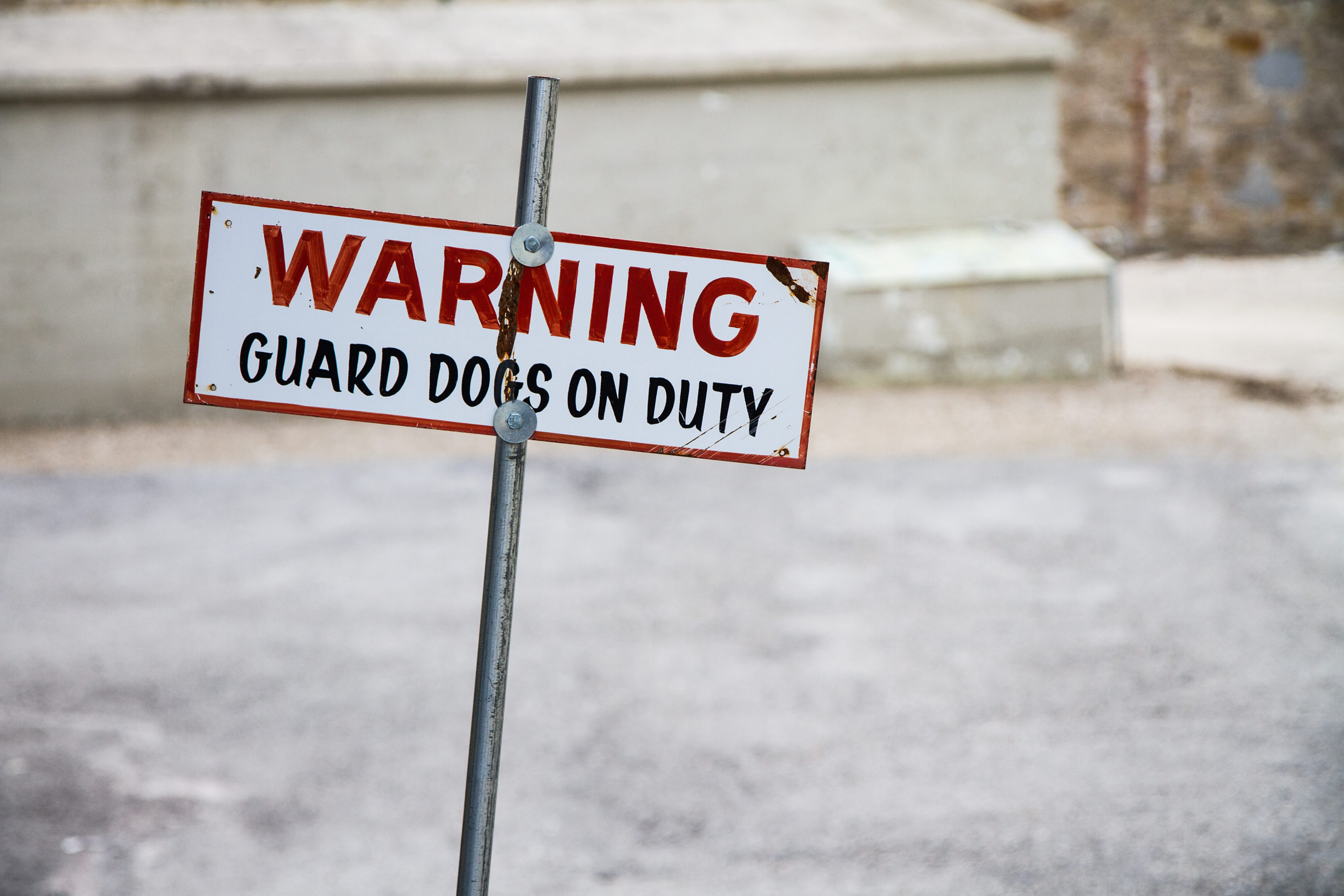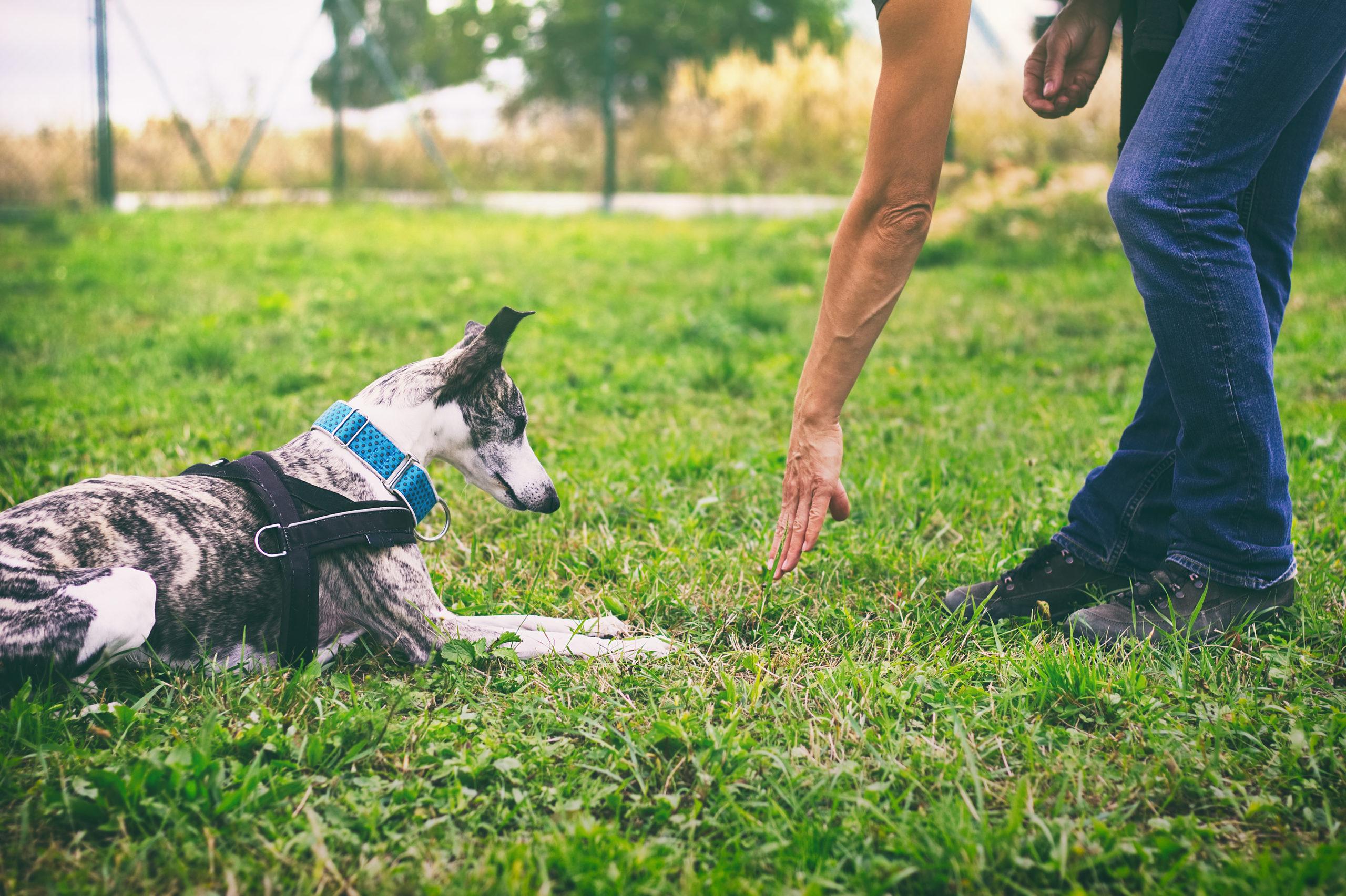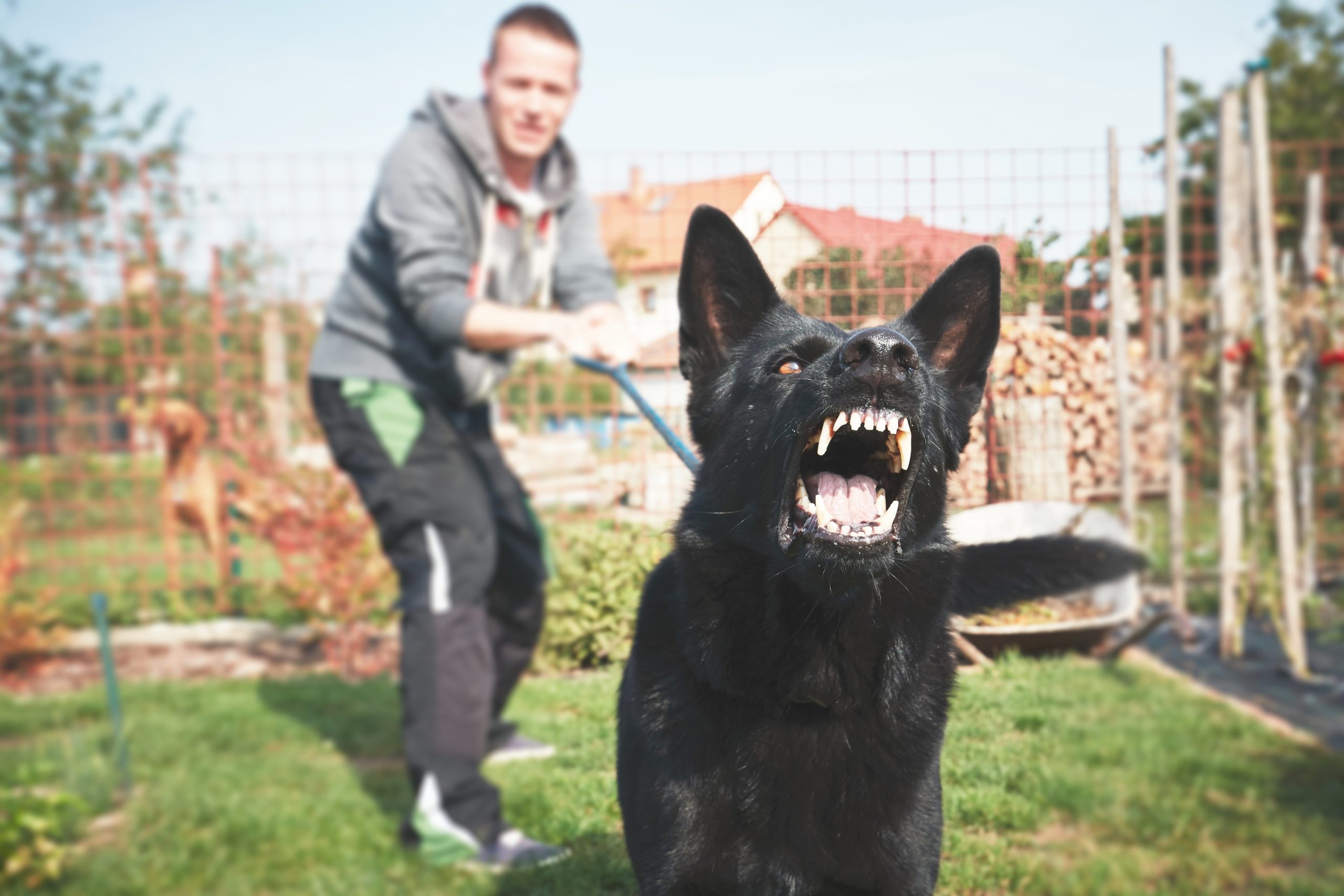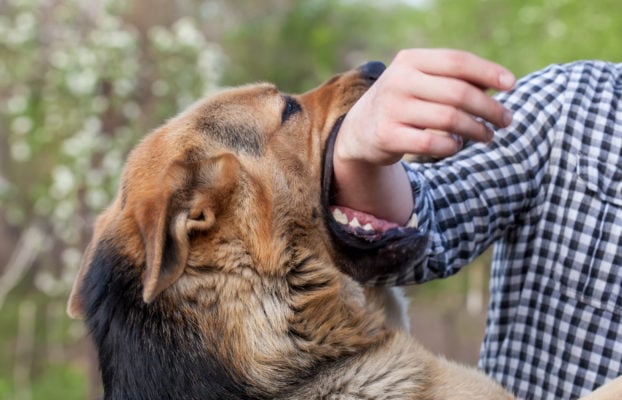Fight Back & Defend Your Rights Against Dog Owners Cat owners Wild Animal owners
Pay Us Nothing Unless We Win Your Dog Bite Case.
Not Just Pit Bulls
Strict Liability
Compensation Can Be Large
Dog Bite Laws and Liability
Man’s best friend…most of the time.
Dogs are the glue that holds us together. They cheer us up when we’re down, and they play with us when we have a sudden burst of energy. Man’s best friend they are, except those infrequent moments when a dog bares its teeth before plunging an incisor into someone else’s skin. As the famous line in Warren Zevon’s “Werewolves of London” goes, a dog’s sharp teeth typically lead to one thing. “Draw blood.”
Many dog biting lawsuits do not even involve a malicious canine, yet it doesn’t matter if a dog has a motive or not. A dog that bit someone isn’t going on trial, nor will the dog have to pay a plaintiff five bags of treats as the award handed down in a civil lawsuit.
No, the dog isn’t going on trial, but the owner of a dog that bit someone might have to pay a price, maybe a steep price. Whether you own a dog or suffered a dog bite injury from another person’s dog, California dog bite laws should interest you.
Laws About Dog Bites
Section 3342 of the California Code states a dog owner is legally liable for the damages caused by a dog bite. A dog bite incident can occur in a public or a private setting that includes the dog owner’s property. It does not matter if a dog never displayed aggression before; California places the legal responsibility for most types of dog bites on the shoulders of the dog owner.
We mention “most types” of dog bites because government agencies such as a police department that use canines for law enforcement work are not legally liable if a working dog was assisting an employee and simply doing what it was commanded to do. Another exception to the strict liability rule is when a dog bites someone because the dog was defending itself from harassment or provocation.
California also has a law on the books that places an additional legal burden on a dog owner because the owner’s dog previously bit or attacked another person. After a dog has bitten someone on two different occasions, the district attorney should analyze both cases to determine whether the dog owner took reasonable steps to keep the dog away from other people.
Although California’s strict liability law applies to virtually every type of dog bite despite a canine’s history, another state law places the responsibility of dog owners for taking “reasonable steps” to prevent additional attacks if a dog has a history of biting people. California statutes allow plaintiffs to file lawsuits against owners of a dog that has bitten a person twice. State law also makes it illegal for a dog owner to train an attack dog that seriously hurt someone with just one bite.
A judge overseeing a dog bite lawsuit might issue a ruling that forces the owner of an attack dog to prevent additional attacks, which can include putting the dog down or relocating the dog out of the area. Civil cases cannot involve a dog that bit a trespasser, as well as working police or military dog. California has in place a separate legal hearing to determine how to deal with a dangerous dog. A representative from animal control or law enforcement must file a petition for a hearing if they suspect a dog to be a serious threat to the community.
A canine can be labeled dangerous if has done one or more of the following things:
- Force someone to defend against an unprovoked attack at least two times during the three previous years
- Bit a person without provocation that resulted in an injury
- Killed or maimed a domestic animal without provocation at least twice over the prior three years
A statute of limitations sets the deadline for a plaintiff to file a lawsuit in the California civil court system. Filing a lawsuit for a dog bite injury falls under the statute of limitations for personal injury lawsuits. California Code of Civil Procedure Section 340 places a two-year statute of limitations for personal injury claims. The clock starts ticking on a dog bite injury claim on the day a dog allegedly bit a plaintiff. If you file a dog bite lawsuit after the personal injury statute of limitations expires, you can expect the court clerk to dismiss your lawsuit.
Working with a dog bite lawyer who specializes in dog bite lawsuits and liabilities can help you meet the deadline for filing a civil lawsuit.
Understanding what you need to do after a dog bite is not only important for your health, but it is also crucial for building a strong enough for a dog bite lawyer to file a civil lawsuit.
- Seek Medical Care
- Exchange information with the dog owner
- Write down witness information
- Contact animal control
Evidence You Need to Collect
If you are a victim of a dog bite, medical documentation is essential for you to win a civil lawsuit. Ask your healthcare provider for every medical record that includes diagnostic tests and treatment plans. The impact of a dog bite can include severe pain, inhibited mobility, and the inability to complete standard tasks. If the dog bite has negatively affected your performance at work, you should ask your employer to provide a written statement that describes how the injury has diminished your work performance.Top of Form
Reasons Why Dogs Bite
Dogs evolved over the centuries to be about as domesticated as humans. They eat at our dinner table, watch television with us, and go for long rides in the country. However, dogs have retained some of the primal instincts developed by their ancestors centuries ago, including using their sharp teeth for several possible reasons.
Possible Defenses for a Dog Bite Lawsuit
Dog owners have several defenses to use when confronted with the liability of a dog bite lawsuit.
A judge or a jury overseeing a dog bite lawsuit wants to see conclusive evidence that a dog bit another person. Evidence must come in the form of medical records that confirm the plaintiff received one or more dog bites. Witness accounts can help a defendant fight back against dog bite charges.
Just because a dog is on someone’s property does not mean a dog on the property belongs to the owner. Stray dogs roam onto people’s properties and bite anyone that approaches the dogs. Animal control and veterinarian records can verify whether a defendant in a dog bite case is the dog’s owner.
A victim who is illegally on another person’s private property has no legal right to file a claim alleging a dog bit the victim. If a dog bit you while you were taking a shortcut across someone else’s property, then you cannot sue the dog owner.
Any type of provocation, from verbal taunts to physical abuse, nullifies the strict liability statute. If a victim was bit after annoying or hitting a dog, the victim has no legal right to file a dog bite lawsuit against the dog owner.
Even the best dog bite lawyers can't guarantee compensation. Some dog bite claims get tossed out of civil court because the plaintiff cannot prove the dog in question bit the victim. A dog bite does not have to puncture the skin for it to be considered a dog bite, Nonetheless, a dog that jumps on someone, tripped over someone, or scratched someone cannot become part of a civil lawsuit alleging a dog bite.
Professionals that work with dogs, such as veterinarians, dog trainers, and dog groomers usually cannot receive compensation for any injuries caused by a dog bite. California law states the risk of a dog bite for a professional canine handler is considered part of their job. However, four conditions might allow a victim to receive compensation for a dog bite.
- The victim worked for the dog owner
- The owner knew the dog bit someone before
- Dog owner signed a contract of liability for any injuries caused by a dog
- The victim received a bite before or after working with the dog





FAQs About Dog Bites
As with other areas of law, California is considered the model for enacting dog bite laws and liability. Most residents of California and certainly visitors from all over the world are not familiar with California dog bite laws.
With that in mind, let’s answer five of the most frequently asked questions that concern California dog bite laws.
Read What Our Clients Have to Say....
So I had contacted John regarding a business related issue I was involved with, with this being my first time ever dealing with something like this, let me tell you first hand, he’s honest, upfront, very informative, and key thing, explains in detail and provides foresight. I went in to see him with my issue I had and I’ve been stressed for about a few weeks regarding my issue, I explained to him my case, afterwards I was so relieved, he provided all the different variables and approaches in my matter, it gave me a sense of guidance on what I can do and should do. I was very comfortable speaking with him, gave me a sense of relief after my meeting with him, all I can say is call him and meet with him and you will feel so much better because he really understands legal matters and understands how to help you with your case and also breaks it down for you to understand and how to go forth. Thanks John!
Annonymous
Learn More About Dog Bites...
We love sharing our knowledge to help educate others.
Contact a Dog Bite Lawyer
The most important step to take after receiving a dog bite injury is to contact a California Dog Bite lawyer who specializes personal injury. Your lawyer can act as the intermediary between you and your insurance company, as well as between you and the lawyer representing the dogs owner. Since dog bite lawsuits are common in the California court system, you should be able to find a lawyer who has extensive experience successfully litigating dog bite cases.
Your lawyer can help you determine an accurate amount of monetary damages, as well as argue that you deserve punitive damages for pain and suffering. Going it alone in a dog bite case can leave you with considerable regret when the other side wins the case. Most personal injury attorneys work on a contingency fee basis, which means they take no upfront money and wait until their clients collect damages to receive compensation in a dog bite lawsuit.

Start Your Free Dog Bite Consult Today













